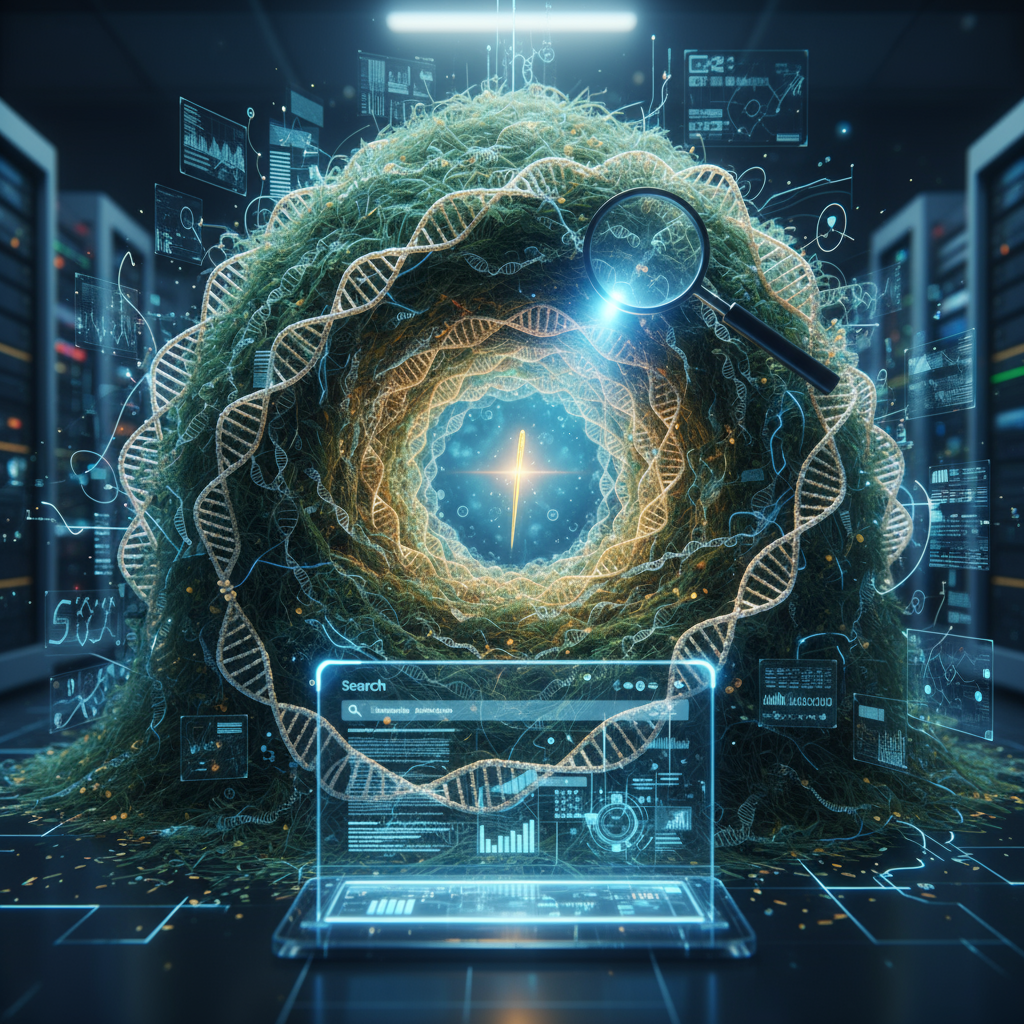Unlocking Life’s Code: Introducing the “Google for DNA”

Imagine a search engine so powerful, it could sift through the blueprints of life itself. Not just web pages or images, but the very genetic instructions that make us who we are, and govern every living organism on Earth. For decades, the sheer volume and complexity of genomic data have been a bottleneck for scientific discovery. But now, that barrier is crumbling. Scientists have launched a groundbreaking search engine for genetic code, dubbed “A Google for DNA,” promising to revolutionize how we understand, research, and ultimately, impact life.
This isn’t just an incremental improvement; it’s a paradigm shift. Just as Google transformed how we access information, this new genomic search engine has the potential to unlock insights hidden within countless DNA sequences, accelerating research in medicine, agriculture, and environmental science like never before. The implications are truly staggering.
The Genomic Data Deluge: A Needle in a Haystack Problem

For years, geneticists have been grappling with a monumental challenge: an explosion of data. Advances in DNA sequencing technology have made it cheaper and faster to generate genomic data than ever before. We now have access to the complete genetic makeup of thousands of humans, animals, plants, and microorganisms. However, simply having the data is one thing; making sense of it is another entirely.
Think of it like having access to every book ever written, but with no index, no library system, and no way to search for specific words or phrases. Researchers often had to rely on laborious, manual comparisons or specialized, fragmented databases to find relevant genetic sequences. This “needle in a haystack” problem has significantly slowed down the pace of discovery, limiting our ability to identify disease-causing mutations, understand evolutionary relationships, or engineer new biological solutions.
How the “Google for DNA” Works: A New Era of Genomic Exploration
This innovative search engine tackles the data deluge head-on. At its core, it leverages advanced computational algorithms and machine learning to rapidly index and compare vast collections of DNA sequences. Instead of just searching for exact matches, it can identify similar sequences, common patterns, and subtle variations that might be indicative of crucial biological functions or evolutionary history.
Imagine a researcher studying a rare genetic disease. Previously, they might have spent weeks or months manually comparing the patient’s DNA to known genetic variations, often missing subtle but significant connections. With this new engine, they can input a DNA sequence and instantly discover similar sequences in healthy individuals, individuals with related conditions, or even entirely different species. This cross-referencing power can quickly highlight potential disease markers, gene functions, or targets for therapeutic intervention.
Furthermore, the engine isn’t just about finding sequences; it’s about context. It aims to integrate metadata, such as the organism’s origin, environmental conditions, or associated phenotypes (observable characteristics). This rich contextual information transforms raw genetic data into meaningful biological insights, making it a truly powerful tool for discovery.
Impact Across Disciplines: From Medicine to Agriculture and Beyond
The potential applications of a universal genetic search engine are vast and cross-disciplinary:
- Precision Medicine: By rapidly identifying genetic variations linked to disease, doctors can offer more personalized treatments. For example, understanding how a specific genetic mutation influences drug response can lead to tailored prescriptions, maximizing efficacy and minimizing side effects. It could also accelerate the discovery of new therapeutic targets for conditions like cancer and Alzheimer’s.
- Agricultural Innovation: Farmers and plant breeders can identify genes responsible for desirable traits in crops, such as drought resistance, pest immunity, or increased yield. This allows for faster and more efficient development of robust crops, vital for global food security in a changing climate.
- Environmental Conservation: Researchers can better understand biodiversity by comparing genetic sequences of different species, tracking endangered populations, or identifying invasive species. This information is crucial for developing effective conservation strategies and monitoring ecosystem health.
- Unraveling Evolutionary Mysteries: The engine can help piece together the evolutionary history of life on Earth, revealing how species are related and how they have adapted over millions of years. This fundamental understanding can inform many other biological fields.
The “Google for DNA” isn’t a silver bullet, but it’s a monumental step towards unlocking the full potential of genomic data. It promises to democratize access to genetic information, empowering researchers worldwide to ask and answer questions that were previously impossible.
The Road Ahead: Building a Collaborative Future
While the launch of this search engine is an incredible achievement, it’s just the beginning. The scientific community will need to continually feed it with new, high-quality data, ensuring its comprehensiveness and accuracy. Ethical considerations surrounding data privacy and responsible use of genetic information will also be paramount as this technology evolves.
Just as Google constantly refines its algorithms and expands its indexed content, the “Google for DNA” will require continuous development and collaboration. It signifies a future where genetic information is not only abundant but also readily accessible and interpretable, paving the way for unprecedented discoveries and profound impacts on human health, food production, and our understanding of life itself.
This tool holds the promise of transforming biological research as we know it, turning a vast, seemingly unmanageable sea of data into a navigable ocean of knowledge. The era of truly understanding the language of life is finally here.

